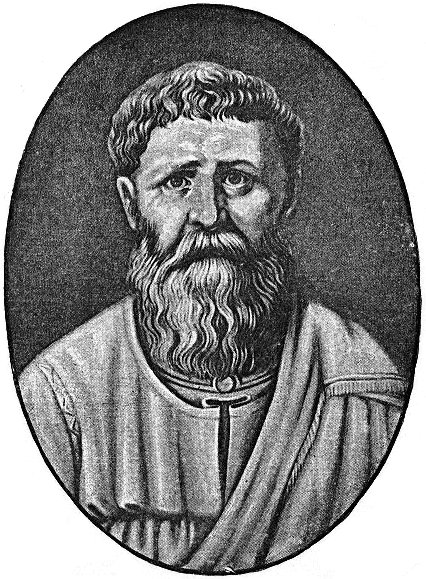Augustine of Hippo
 |
Augustine of Hippo (November 13, 354 – August 28, 430) was a Christian theologian and philosopher whose work was a major influence both Christianity and Western philosophy. He is considered one of the most important church fathers and is best known for his works The City of God and Confessions. He was born in North Africa now part of Algeria to a family with Latin and Phoenician roots. His mother was a devout Christian and his father a Pagan who converted on his deathbed. In his early years he was a follower of Manichaeism and then Neo-Platonism before converting to Christianity in 387. He was soon made Bishop of Hippo Regius in the Roman province of Numidia and developed his distinctive approach to theology and philosophy, synthesizing a variety of perspectives and methods. In doing so he advanced key concepts as the grace of Christ, the doctrine of original sin, the theory of a just war, and the concept of a spiritual City of God distinct from the material world that underlies the concept of the Trinity defined by the Council of Nicaea and Council of Constantinople. He is regarded as a saint by the Catholic and Anglican churches and considered by many Protestant denominations as a theological father to the Reformation for his teachings on salvation and divine grace. He is the patron saint of brewers, printers, theologians, the alleviation of sore eyes, and of a number of cities and dioceses. |
The Confessions of St. Augustine
The Confessions of St. Augustine, also called Confessions, is an autobiographical work written by St..
$11.99

